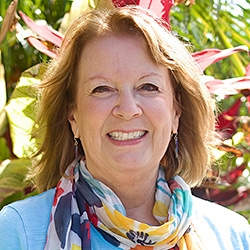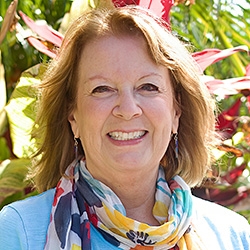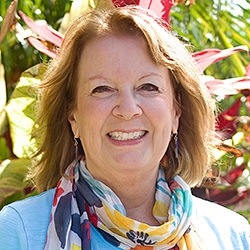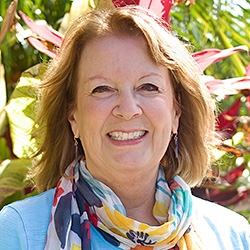
Search Results: responsibility
-
What we refer to as "selfishness" is action taken without concern for the impact or cost of that action. Self-responsibility, on the other hand, includes actively living from the truth of interdependence, care for your and others needs, thriving of all, and more. We can access clarity of self care when we have open flexibility, curiosity, and responsiveness. Read on for more on the indicators and attributes of each of these distinctions.
-
Self responsibility is owning what's yours. It involves identifying your observations, evaluations, feelings, longings, and more. When we identify what's truly ours we are unlikely to mistake it as coming from outside of us. Self responsibility is not self blame. Without self responsibility, we project, blame and judge. Self-responsibility is central to clarity and full self-awareness. This exercise will guide you there.
-
Trainer Tip: Mary shares an experience about accepting responsibility for her actions and how that lead her to greater choice and freedom.
-
Trainer Tip: Giving up on blame and taking responsibilty for our choices is immensely empowering. Mary offers a tip for growing in this direction.
-
Taking 100% Responsibility offers a powerful antidote to the all-too-common dynamic of blaming that leaves you in the victim position and unable to have the relationship you want. Miki invites you to assume a stance of leadership while holding full care for both parties’ needs. No longer will you need to wait for the other person to change, nor will you need to give up your needs to reach harmony.
-
If it's a tender topic and/or you are looking for a particular level of responsiveness, you can let listeners know what you want back before you share -- or you can ask them for a particular kind of response right after you share. The more you can do this, the more it can create supportive relationships in your life. Read on for ways to ask for a particular kind of responsiveness to meet particular needs.
-
Being self-responsible is about empowerment — via noticing what is potentially in our locus of control, getting to know ourselves better, looking at our own role in how we experience life, and making conscious choices to act within our own power. This requires us to be mindful in relating our stories to our needs. Read on for more on this, and the various pifalls within thinking about self responsibility.
-
Trainer Tip: While everyone's feelings are a result of their own met or unmet needs it's still important that we take responsibility for our actions. This means acknowledging when our behaviors are a stimulus for another's pain, and expressing regret -- to support our own needs for care and consideration. In the process, taking responsibility where it's due in this way can enhance and deepen our relationships.
-
Ask the Trainer: "I understand that I'm not responsible for someone else's feelings, but my girlfriend doesn't. Do you have ideas for how I could get her to understand this concept?"
-
In the "obnoxious stage" we care for our needs in a way that doesn't respect others' needs. In the "emotional liberation" stage we fully care for others' needs as much as our own—while being free of fear, guilt, shame, or obligation. Often NVC training teaches us how to achieve the latter stage without the former. For greater compassion we can be more rigorous in how we talk about “responsibility", impacts and interdependence.
-
Trainer Tip: It's important to design requests to fit specific needs. Otherwise people may do exactly what you ask and still, your needs may not get met. Before you make a request of someone, notice if the strategy you are considering is likely to meet your needs. If not, consider making a different request that may be more satisfying to you.
-
This trainer tip suggests ways to transform blame in to personal power. He suggests having multiple sources of support and multiple pathways to achieving the outcome you want, to allow more room to hear a "no". Read on for more.
-
Anger can bring in judgment and blame. Instead, use anger and frustration to identify what’s important and express what matters to you in a collaborative way.
-
Often when someone else does something we don't like, it's easy to blame the other person. After all, we have all been trained to focus on fault when needs are not met. What can we do to shift that pattern?
-
One NVC principle is "stimulus vs cause" - one may be the stimulus but never the cause of another's feelings. When we're upset this principle can help us express pain without blame. However, when others are upset it's easy to slip into blaming them using this principle. Instead, we can hear their pain with care and heartfelt mourning - without guilt nor defensiveness, and whether or not we agree. All this is important if we're sincerely applying compassion. Read on for more.
-
The Compass – Arnina Kashtan's in-depth transformational process – is specifically designed to support you in reliably deepening your understanding of your own and others' conditioning, and finding ways to reclaim your full connection with yourself.
-
-
-
-

















